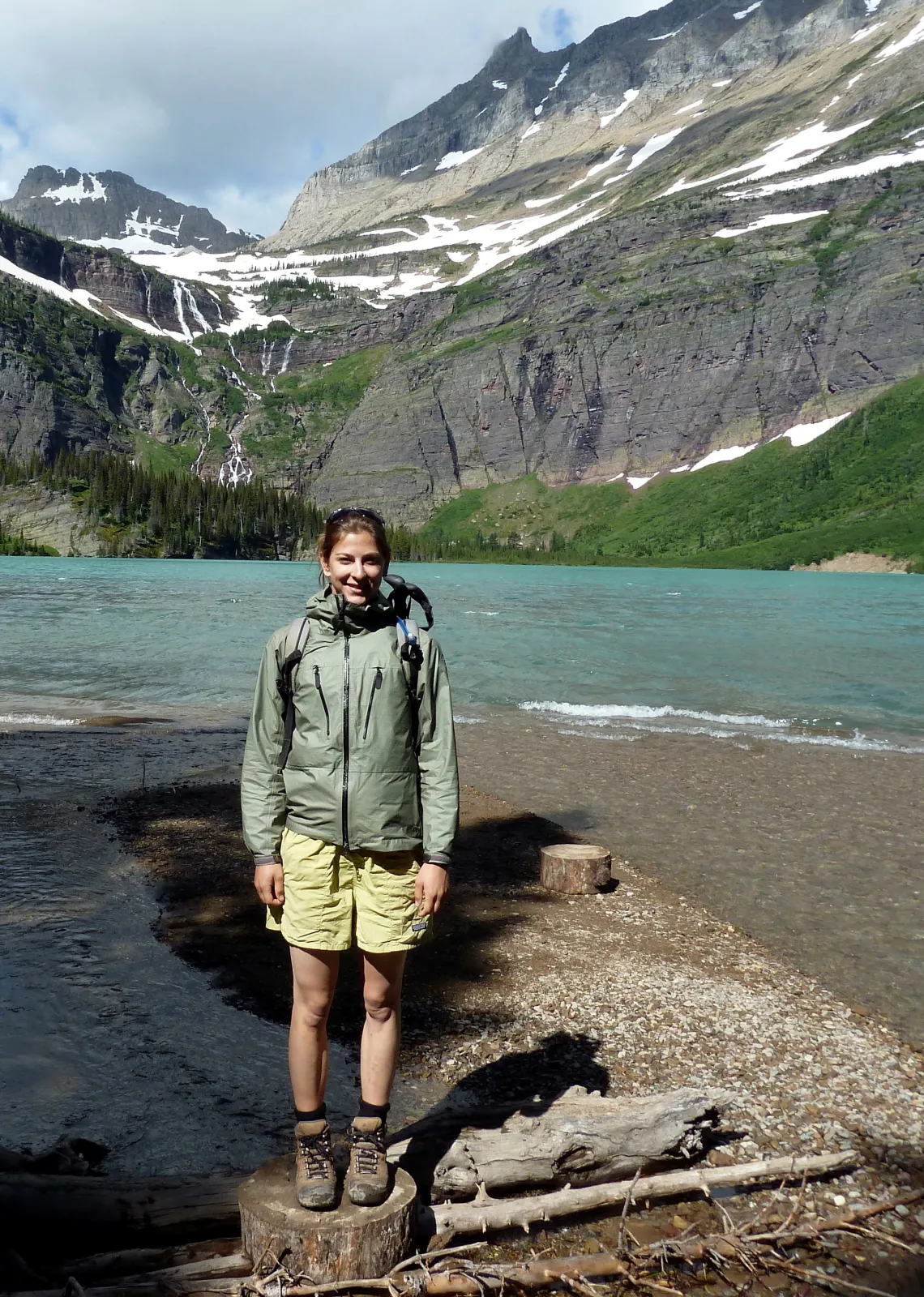Spotlight on Kat Compton - NSF Fellow

My name is Kat Compton and I’m in the 4th year of my PhD program in Geosciences at the University of Arizona. I received a National Science Foundation Graduate Research Fellowship in 2012.
I study glacial rebound in Iceland using GPS, the same technology in smartphone maps. GPS measurements can tell us something about the ways in which weather and climate affect the physical shape of our Earth’s surface. Large ice caps, like those found in Iceland are so heavy that they push the surface of the Earth down, just like pushing your finger on an inflated balloon creates a divot. As the ice caps melt, the Earth’s surface pops back up. Measuring how fast this popping-up phenomenon occurs, and whether it’s been changing over time, can tell us something about how our changing climate is affecting how fast the ice caps melt.
My current research is quite different from that I proposed as part of my NSF GRF application. As all of us in science know, sometimes projects are successful, and other times it’s necessary to change direction. Even though I’m no longer working on my NSF proposed project, I count my experience of writing the project proposal as one of the most valuable learning experiences of my first semester of graduate school. By the time I submitted my application, I’d had several brainstorming meetings with my advisor, read tons of papers about my project area, and had practice in formal grant writing style.
I strongly encourage eligible students to apply to the NSF GRF. Not only does external funding provide a bit of extra freedom in research (my PhD work is not currently funded by any other grant), but the application process can be a real catalyst for research. The first year of any graduate program can be a bit overwhelming as we transition into grad classes and learn just how much work TAing can be. Research often falls to the end of our “to do” list. Applying for the NSF GRF provides a bite-sized and structured way for us to build a research road map for ourselves and to open a line of communication with our advisors.
I am happy to answer any questions about application and essay strategies, as well as best practices for developing a research proposal. Feel free to email me. Also, if you’re considering applying for the NSF GRF, I encourage you to register for the application support program through the Office of Fellowships and Community Engagement. You’ll have the opportunity to attend strategy and writing workshops throughout the early Fall, and to turn your essays in for review by current NSF fellows.

